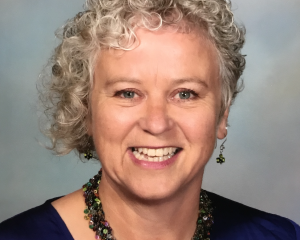
Chief Ombudsman Peter Boshier said he had grave concerns about the situation in ward 10A, which houses people with intellectual disabilities and/or mental health issues.
Mr Boshier was critical of the physical environment of Ward 10A, which he says is exacerbating a situation in which male and female patients, some with criminal convictions or who pose a serious risk, are accommodated together.
He described the environment on the ward as volatile.
"The ward holds multiple contracts with the Ministry of Health which means forensic and non-forensic patients are being accommodated together. There is also a lack of gender separation on the ward.
"This, together with the fact that the ward is not fit for purpose and is in critical need of upgrade and redevelopment, is creating a volatile environment. The physical environment was described by staff working there as a 'disgrace', and I believe it compromises staff and patient safety," Mr Boshier said.
This situation was another example where the Ministry of Health had failed in its stewardship responsibility to ensure investment in facilities met the needs of the community.
The Chief Ombudsman’s report on Ward 10A and its community transition accommodation, Helensburgh Cottage, was released today along with reports on Ward 6C at Dunedin Hospital; Manaakitanga Unit at Te Nīkau Grey Base Hospital in Greymouth; Wāhi Oranga Mental Health Admission Unit at Nelson Hospital; and Fraser McDonald Unit at Auckland City Hospital.
Another area of concern at Ward 10A was seclusion and restraint events, including a patient being barricaded in their room and an N95 face mask being placed on a patient during a restraint.
"There were some positive aspects, however. Patients were able to lock their doors and bathrooms.
"The unit also did not use night safety orders, where patients are locked in at night. It had also implemented a system of ‘ward rounds’ meetings in which staff discussed care and activities for patients," Mr Boshier said.
At Manaakitanga Unit on the West Coast, security staff had been used in restraint events, including male security staff restraining female patients.
"I am concerned about what appears to be the normalisation of the use of security staff for therapeutic interventions in mental health units. I am pleased the Ministry of Health and DHBs have responded to my concerns and I look forward to seeing progress in this area in future."
"The purpose of my inspections and subsequent reports are to shine a light on the welfare of extremely vulnerable people. It is my hope that the reports act as a catalyst for change and a more positive approach to the care of people with intellectual disabilities and/or mental health issues," Mr Boshier said.
The inspections, between March and June last year, were carried out under the Crimes of Torture Act 1989. New Zealand is a signatory to the Optional Protocol to the Convention against Torture, an international human rights agreement.
- Staff reporter











